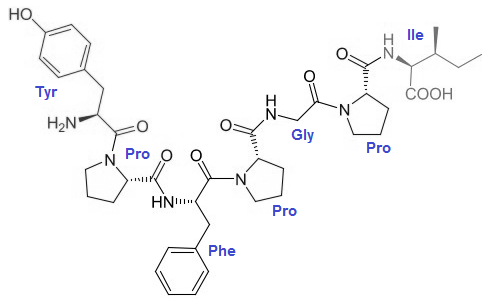Here's a
2D-skeletal model of the ketamine molecule.Thanks to
Emily Deans for bringing
Ketamine, magnesium and major depression – From pharmacology to pathophysiology and back to my attention some time ago, in a Tweet.
"The link to the pathophysiology of
depression is not clear. An overlooked connection is the role of
magnesium, which acts as physiological
NMDA-receptor antagonist:
1. There is
overlap between the actions of
ketamine with that of
high doses of
magnesium in animal models, finally leading to
synaptic sprouting.
2. Magnesium and
ketamine lead to
synaptic strengthening, as measured by an
increase in slow wave sleep in humans.
3. Pathophysiological mechanisms, which have been identified as
risk factors for
depression, lead to a
reduction of (intracellular) magnesium. These are neuroendocrine changes (
increased cortisol and
aldosterone) and
diabetes mellitus as well as
Mg2+ deficiency.
4. Patients with
therapy refractory depression appear to have lower
CNS Mg2+ levels in comparison to health controls.
5. Experimental
Mg2+ depletion leads to
depression and
anxiety-like behavior in
animal models.
6. Ketamine, directly or indirectly via
non-NMDA glutamate receptor activation, acts to
increase brain Mg2+ levels.
Similar effects have been observed with other classes of antidepressants.
7. Depressed patients with
low Mg2+ levels tend to be
therapy refractory. Accordingly,
administration of Mg2+ either alone or in combination with standard antidepressants acts synergistically on depression like behavior in animal models.I'm wondering whether the
amnesia for
vivid dreams (if you wake up in the middle of one) is
mediated by
magnesium, as amnesia is a
ketamine-like effect.
Therefore, a
deficiency in
magnesium may cause
bad memories to
linger, increasing the risk factor for
situational depression.
4g/day of
Epsom Salts provides 400mg/day of Magnesium. Dissolve the Epsom Salts in warm water and add the solution to your drinks over a 24 hour period, to maximise absorption & minimise laxation.
See also
Ketamine, and
Mechanisms underlying differential effectiveness of memantine and ketamine in rapid antidepressant responses.





-ketamine-from-xtal-2D-skeletal.png)